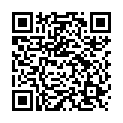|
|
|
| Module code: E904 |
|
|
1V+1P (2 hours per week) |
|
3 |
| Semester: 9 |
| Mandatory course: yes |
Language of instruction:
German |
Assessment:
Oral examination
[updated 12.03.2010]
|
E904 (P211-0260) Electrical Engineering, Master, ASPO 01.10.2005
, semester 9, mandatory course
|
30 class hours (= 22.5 clock hours) over a 15-week period.
The total student study time is 90 hours (equivalent to 3 ECTS credits).
There are therefore 67.5 hours available for class preparation and follow-up work and exam preparation.
|
Recommended prerequisites (modules):
None.
|
Recommended as prerequisite for:
|
Module coordinator:
Prof. Dr. Benedikt Faupel |
Lecturer:
Prof. Dr. Benedikt Faupel
[updated 12.03.2010]
|
Learning outcomes:
The use of simulation tools enables solutions to engineering problems to be checked and verified. This module introduces students to the different simulation tools available and to their use in building models, performing simulations and evaluating results. Students will be required to select and apply these tools to specific problems. Students will thus gain an appreciation of the applicability, complexity and benefits of such systems. They will be able to accurately assess the time and effort needed to set up simulation models and to interpret simulation results. Students will acquire practice in designing and practically implementing simulation projects.
[updated 12.03.2010]
|
Module content:
1.Introduction and presentation of simulation tools in automation engineering
(e.g. Matlab/Simulink, LabView, SIMIT)
2.Procedures, methodologies and approaches to model building
3.Selecting test signals / Incorporating external measurement signals
4.Interface and coupling to real systems
5.Interpreting the results
6.Short student presentations on innovative control concepts as part of the
lectures with discussion of results.
[updated 12.03.2010]
|
Teaching methods/Media:
Lecture notes, overhead transparencies, video projector, PC, CD
[updated 12.03.2010]
|
Recommended or required reading:
At the beginning of the course, students will be issued with a CD containing all the teaching material used in this module. The CD also contains a complete and regularly updated list of recommended reading materials.
[updated 12.03.2010]
|


